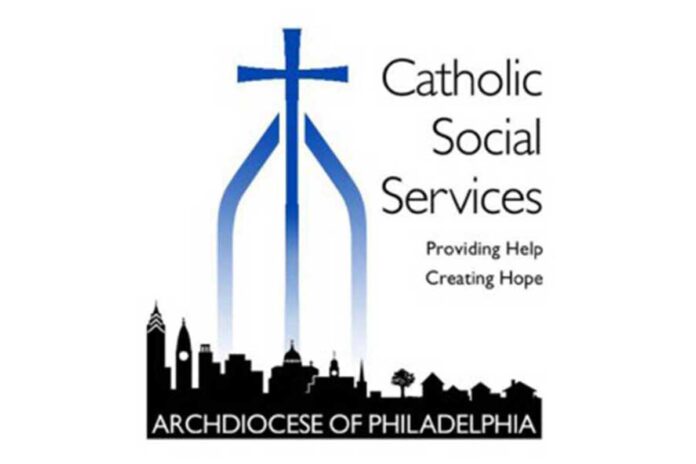We are about a week away from the 2020 elections. A case that the U.S. Supreme Court will be hearing the day after the election, however, has me as concerned as the elections themselves, for it goes to the heart of how our country treats its children and to LGBTQ people’s right to be treated equally as prospective parents.
The case, Fulton v. City of Philadelphia, began in 2018, when the City of Philadelphia stopped referring foster children to Catholic Social Services (CSS) because the agency would not license qualified same-sex couples to be foster or adoptive parents. CSS then brought a lawsuit in federal district court.
The ACLU intervened on behalf of the Support Center for Child Advocates, which provides legal representation and services to children in the foster care system, and Philadelphia Family Pride, a nonprofit organization for LGBTQ parents and prospective parents. They argued that children and families would be harmed by CSS’ actions. CSS countered by arguing that they had a First Amendment right to deny service based on religious beliefs, and asked the court for a preliminary injunction requiring the city to continue referring children to them while the case proceeded.
The U.S. District Court for the Eastern District of Pennsylvania denied that injunction in July 2018, and a three-judge panel of the 3rd U.S. Circuit Court of Appeals in April 2019 supported the district court’s position.
CSS had also tried in August 2018 to petition the Supreme Court to grant them an injunction, but this was denied, though Justices Clarence Thomas, Samuel A. Alito Jr., and Neil Gorsuch dissented. CSS appealed to the Supreme Court again after the appeals court ruling, and in February 2020, the Supreme Court took the case. In June, the Trump administration filed a brief siding with CSS.
Depending on how the Supreme Court rules and how broad or narrow its ruling is, Fulton could create a license to discriminate in Philadelphia or around the country, said the Movement Advancement Project (MAP) in an August report. Otherwise-qualified prospective parents could be turned away by child service agencies. LGBTQ children could be turned away or be placed with families that don’t support their identities.
Beyond child welfare, MAP said, a very broad ruling could even mean that other institutions receiving government funding, such as soup kitchens and job training programs, could claim religious exemptions and “serve only those who share their own beliefs or [refuse] to provide critical services to those who don’t.”
The outcome could also reduce the possibility of successfully challenging existing discriminatory laws. Eleven states now allow discrimination in child services by agencies citing religious beliefs, all but two allowing it even for taxpayer-funded agencies. And the amount of taxpayer money in child services is significant. An estimated $29.9 billion in federal, state, and local funds was spent on child welfare in 2016, according to the nonpartisan, nonprofit research center Child Trends. Beyond child services, the Trump administration last November issued a rule that allows not only child service agencies, but also other recipients of grants from the U.S. Department of Health and Human Services (HHS), to cite their religious beliefs as a reason to discriminate.
It’s important to understand the arguments made by those wishing to allow this discrimination. One is that faith-based child service agencies would otherwise be forced to close, limiting the number of homes available to the more than 400,000 children in the foster care system. As the ACLU notes on its website, however, most faith-based foster care agencies do accept all qualified families. Bethany Christian Services in Philadelphia, in fact, changed its policy after the city objected and now accepts same-sex couples wishing to foster children. When some agencies have chosen to stop offering taxpayer-funded services rather than comply with nondiscrimination laws, others, including faith-based ones, “have stepped in to provide those services,” says the ACLU. The shortage is thus of foster families, not of agencies — and turning away otherwise qualified people would exacerbate this.
Another argument is that prospective foster parents who are turned away can just go to another agency. Even if there are other agencies nearby that will serve them, however (not always a given), the prospective parents may choose to stop trying and not to “risk further humiliation,” notes the ACLU.
Yes, freedom of religion is a founding principle of this country — but so is the separation of church and state. That means that any organization using public funds should not impose its beliefs on others or use them as a reason to discriminate. Many agree. In August, more than 1,000 experts and organizations — including LGBTQ, civil rights, and child welfare organizations, faith-based foster care agencies, faith leaders, legal scholars, and bipartisan elected officials — filed nearly 50 briefs with the U.S. Supreme Court in support of Philadelphia and its position.
A loss in this case would first and foremost be harmful to the many children in need of homes. It would also set back the family-building plans of many LGBTQ people and others and could have a far-reaching impact on other critical social services.
Family Equality is launching a storytelling project with the goal of changing “hearts, minds, and policies” around this case and these issues. If you have experience with the child welfare system in any context, visit familyequality.org to see if your story can help.
No matter what happens on November 3, our work fighting for equality — for our families and others — will continue on November 4 and far beyond.
Dana Rudolph is the founder and publisher of Mombian (mombian.com), a GLAAD Media Award-winning blog and resource directory for LGBTQ parents.
